9 Signs You Were Not The Favorite Child Growing Up And It's Affecting You Now
Parental favoritism has serious consequences on children.
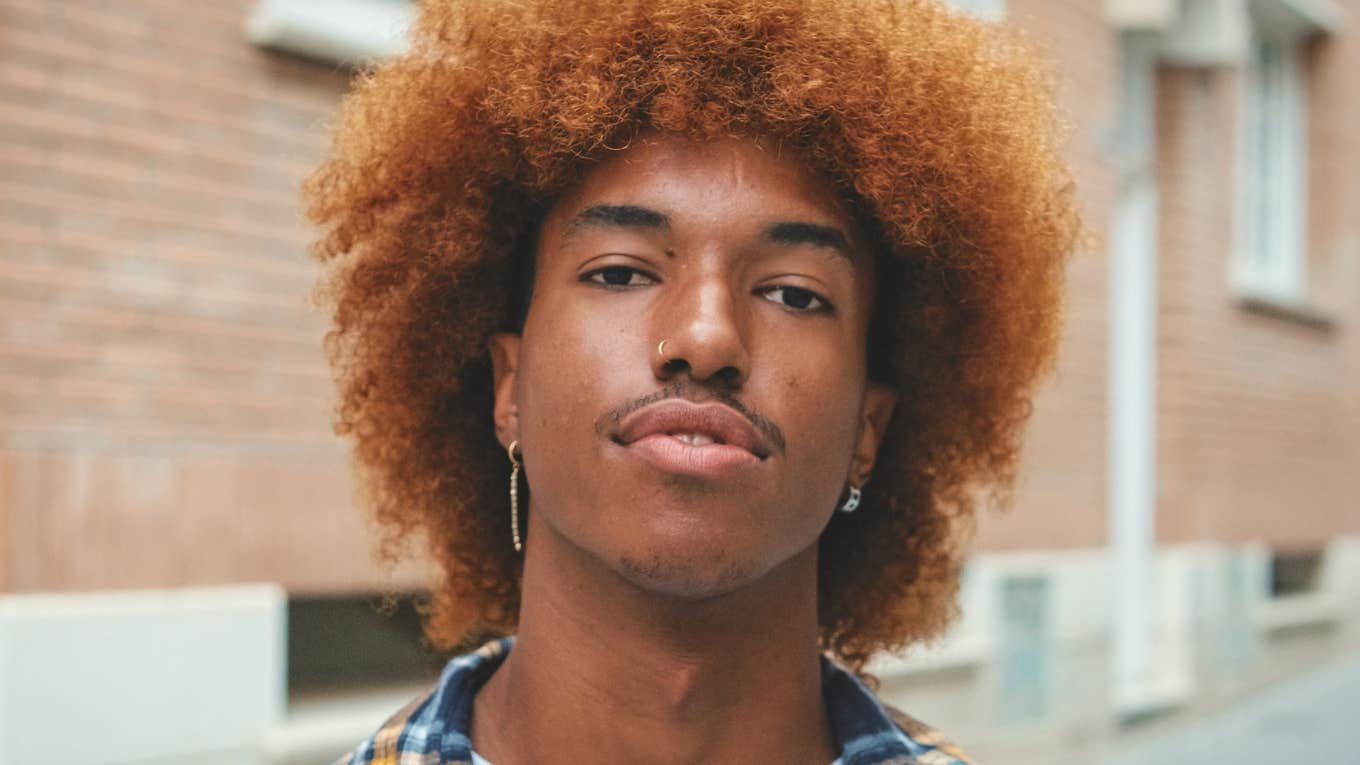 Andrii Nekrasov | Shutterstock
Andrii Nekrasov | Shutterstock Parental favoritism is the preference of a parent for one child over another. Psychology Today reported that favoritism occurs in one-third to two-thirds of families in the United States.
If your parents played favorites, the way you were treated in childhood can greatly affect your mental health and emotional well-being as an adult. If you noticed signs you were not the favorite child growing up, it's highly likely that you experience anxiety and depression, along with lower self-esteem and poor academic performance in school.
The effects of being the disfavored child can be long-lasting, as the way your sense of self formed when you were young can carry through into your adulthood.
Here are 9 signs you were not the favorite child growing up and it's affecting you now
1. Your parents dismissed your emotions
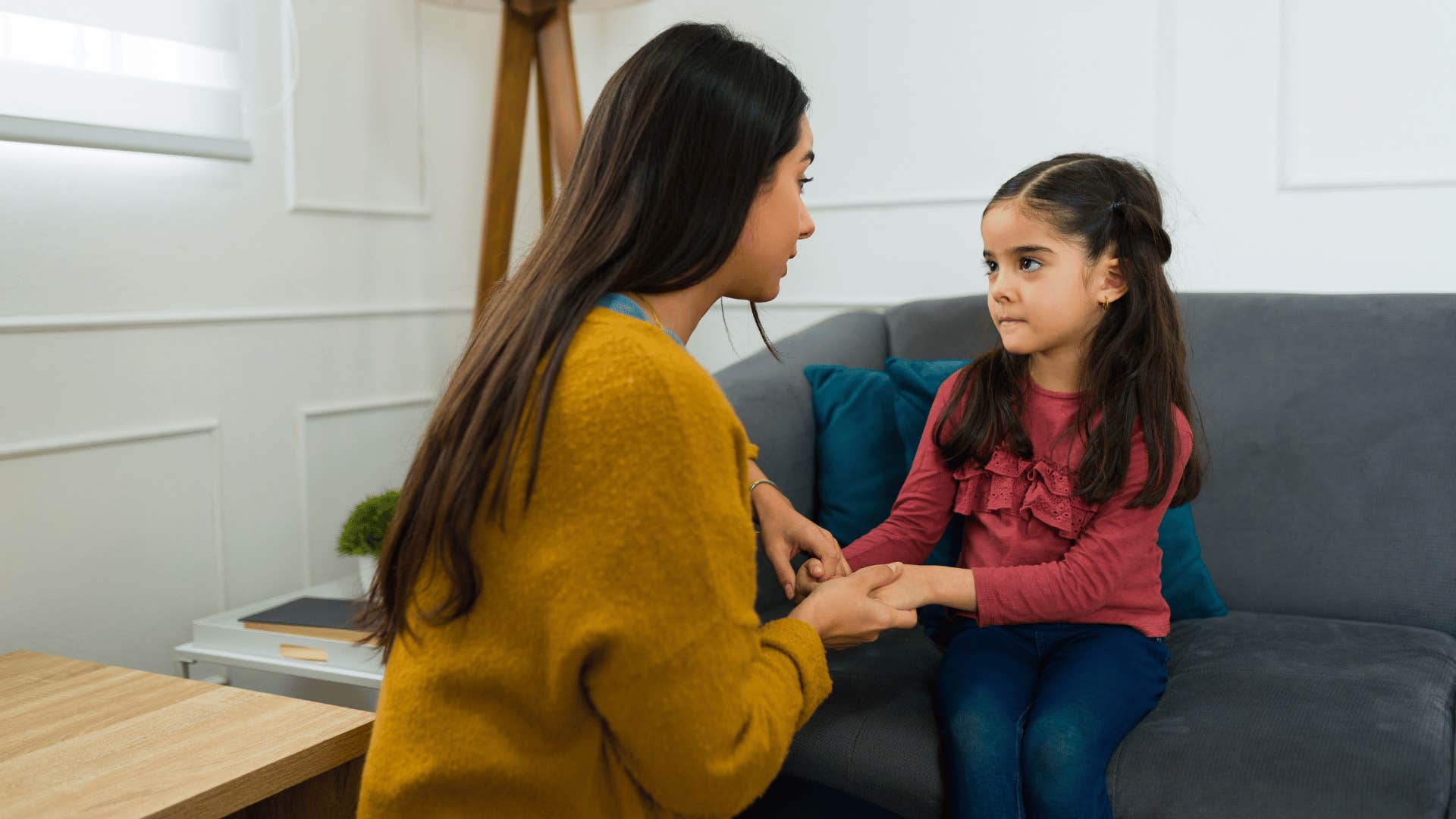 Antonio Diaz | Shutterstock
Antonio Diaz | Shutterstock
If you were not the favorite child in your family, your parents probably acknowledged your emotions less often than they did for your favored sibling. Having your feelings dismissed by your parents sends the message that expressing your emotions doesn't help you get your needs met. You likely learned from a young age to repress how you felt and pretend like everything was fine, even when it wasn't.
Having your emotions dismissed as a child often means that you realized that your parents weren't safe people to share your feelings with. As an adult, you might feel disconnected from your own emotions and struggle to recognize how you feel. It's also possible that you developed an insecure attachment style as a result of not being the favorite child, which can make it difficult to maintain close relationships as an adult.
2. You were given more responsibilities at a young age
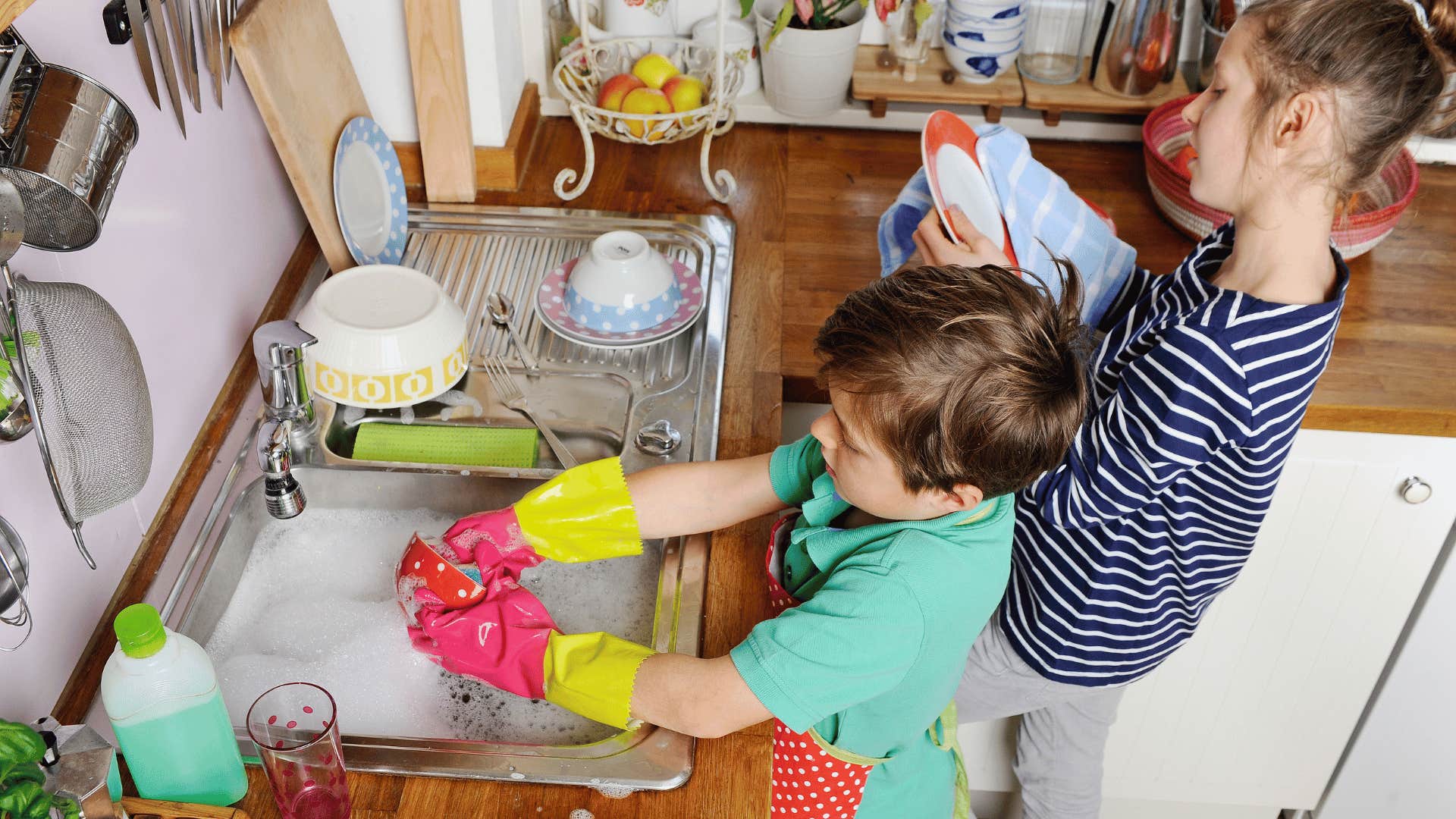 granata68 | Shutterstock
granata68 | Shutterstock
Another sign that you were not the favorite child growing up is that your parents placed more responsibilities on you as a child, compared to your favored sibling. While doing household chores can help kids succeed in school and later in life, if those chores are distributed in an unfair way, it can negatively affect you as an adult.
Being assigned a developmentally inappropriate level of responsibility is also known as parentification or adultification. According to an article published in a public health journal, parentification requires children to become "pseudo-adults long before they are cognitively and physiologically equipped for these roles."
Instrumental parentification is associated with kids assuming the role of maintaining the function of the household, in regard to providing meals, doing chores, and even contributing financially. Emotional parentification forces kids to tend to the emotional needs of their other family members.
The negative outcomes of parentification include internalizing emotions and behaviors, externalizing problems, and developing rejection sensitivity or an insecure attachment style. Being asked to show up in an adult role when you were still young is a sign that you weren't the favorite child.
3. Your achievements were never recognized
 Harbucks | Shutterstock
Harbucks | Shutterstock
As the disfavored child, your parents probably brushed your accomplishments under the rug while celebrating and amplifying what your sibling did. Maybe your parents showered your sibling with positive attention when they did well in school, but ignored your academic achievements. Maybe they expected you to exist in the image of your favored sibling, and showed disappointment when you couldn't measure up in their eyes.
It's possible that your sense of self-worth was deeply affected by the way your parents treated you. As a child, you were essentially told that you were never good enough, so you internalized that message. As an adult, you have low self-esteem and low confidence, and you still don't believe that you can do anything right.
4. You weren't encouraged to pursue your dreams
 Ground Picture | Shutterstock
Ground Picture | Shutterstock
Another sign you were not the favorite child growing up is that you weren't encouraged to follow your dreams, while your sibling was. Any interest you showed in an activity or hobby wasn't as important as what your sibling did, so you eventually stopped trying. If they were seen as the star athlete or the talented musician, you probably took yourself out of the running because you knew you couldn't compare.
As a result, you might not have a strong understanding of what you actually like to do. You might give up easily when faced with challenges, because your parents didn't push you in the same way as they did with your sibling. You have a low sense of self-efficacy, which means you don't believe in your own capabilities to do difficult things.
5. Your parents didn't show affection
 fizkes | Shutterstock
fizkes | Shutterstock
If your parents showed love and care to your sibling but didn't give you care in the same way, that lack of affection can affect you as an adult. When parents express warmth and affection to their children, it leads to a wealth of positive outcomes.
The Gottman Institute reported that parental affection fosters a strong connection between parents and their kids, along with stronger communication. Being affectionate boosts kids' self-esteem, improves their academic performance, and creates fewer psychological and behavioral problems.
Yet not receiving an adequate amount of affection can prove harmful to children. A lack of affection can lead to high levels of stress and anxiety in adulthood, along with lower self-esteem and a feeling of being socially alienated.
If your parents withheld affection when you were younger, it could mean that you built your sense of self-worth in adulthood around constantly seeking validation from other people.
6. You felt distant from your sibling
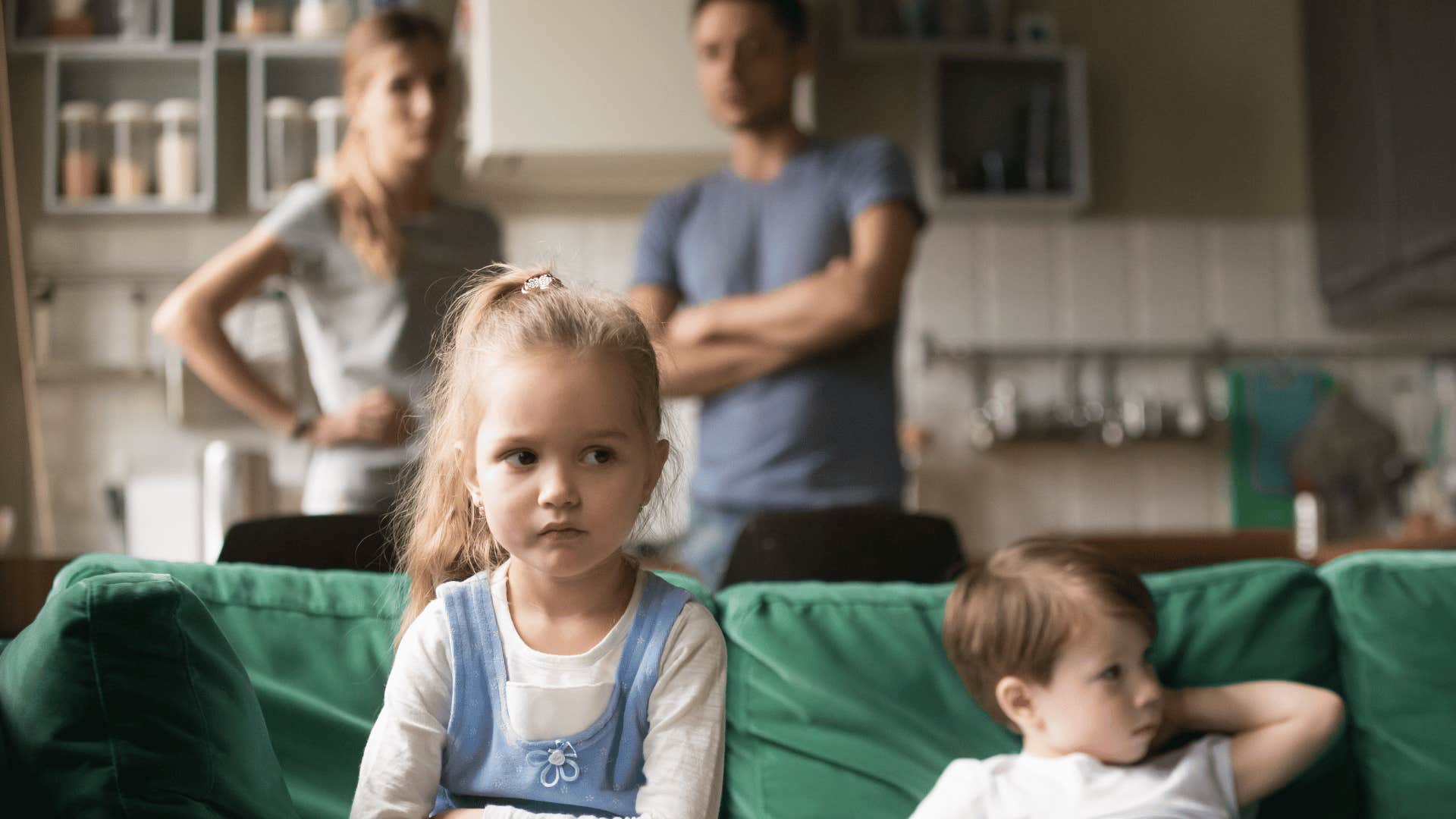 fizkes | Shutterstock
fizkes | Shutterstock
According to a poll conducted by the Survey Center on American Life, sibling relationships in families that played favorites suffered as a result of that favoritism. While 48% of Americans who were raised in families without a favored child reported having a close relationship with their sibling, only 30% of people who were raised in families where one child was treated as the favorite said that they're close with their sibling.
When one child is favored over another, there is usually a strong sense of competition between the siblings, which fosters a sense of distance between them. It's hard to feel close to someone you've been compared to your whole life, which is why it's hard for disfavored children to trust their siblings who were favored by their parents.
7. You were criticized for small mistakes
 Gladskikh Tatiana | Shutterstock
Gladskikh Tatiana | Shutterstock
If you were not the favorite child growing up, it's possible that the attention your parents did grant you was negative attention. Your sibling was held up as the shining example of a golden child, while you were labeled as the one who always made mistakes. Your parents were hyper-critical anytime you did something wrong, but they didn't show the same level of criticism to your sibling, even if they made a similar mistake.
As a result, you entered adulthood thinking that there was something inherently wrong with you, or that you could never do anything right. You don't believe in yourself, because you weren't taught to do so by your parents during your tender developmental years.
8. Your parents didn't give you their time or energy
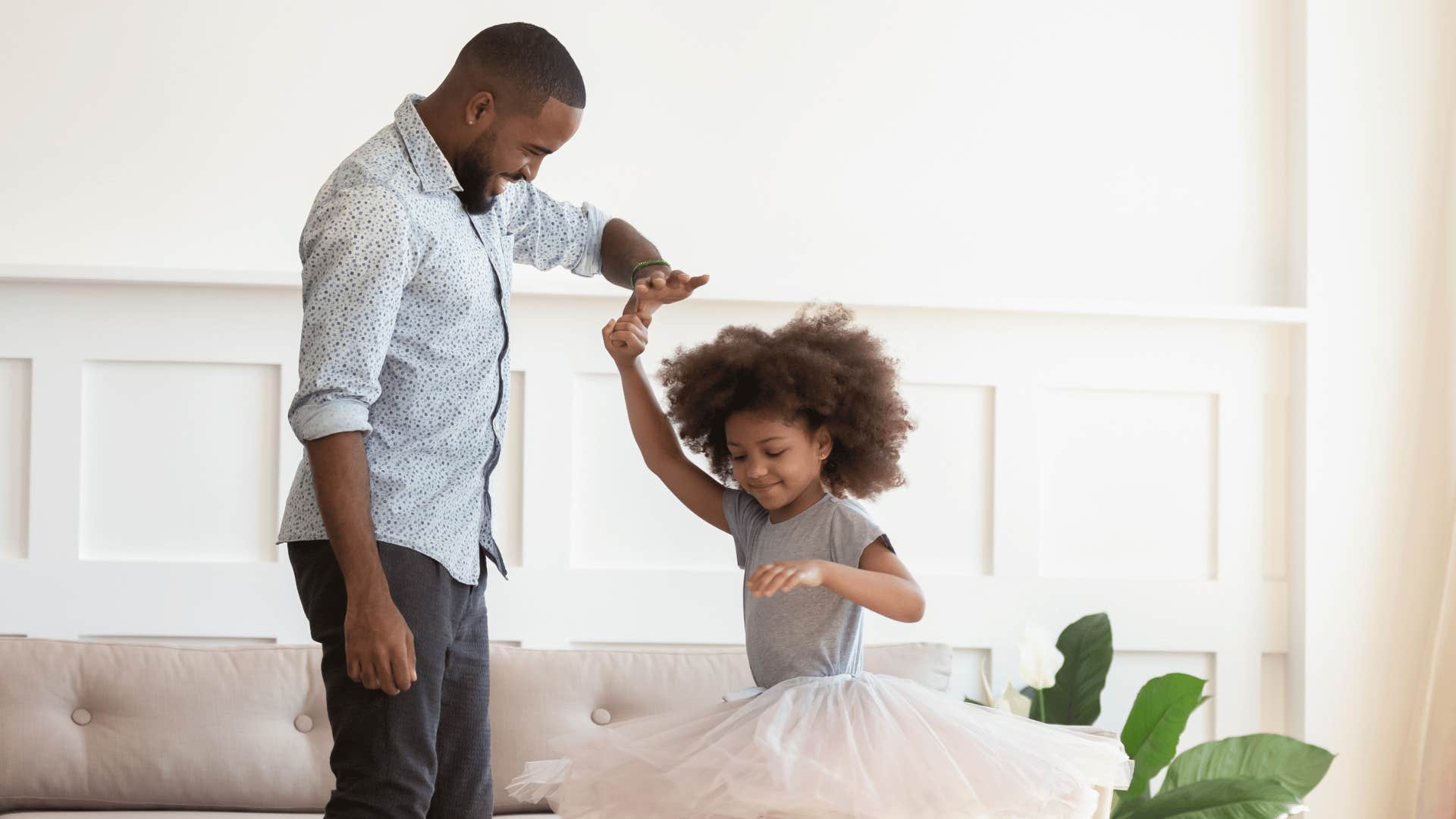 fizkes | Shutterstock
fizkes | Shutterstock
Your parents' favoritism could also have presented itself by offering your sibling more time and resources than they gave to you. If your parents thought your sibling was a better student than you were, they probably fostered their academic capabilities over yours. You didn't get the same amount of practical attention that your sibling received, and you weren't given the same opportunities, either.
A study published by the Journal of Marriage and Family reported that favorite children are more likely to receive interpersonal resources and financial resources from their parents, which increases the likelihood of their success as adults. Because the disfavored child wasn't given the same amount of time or energy, they didn't get the same boost into having a successful adulthood.
9. You felt invisible and isolated
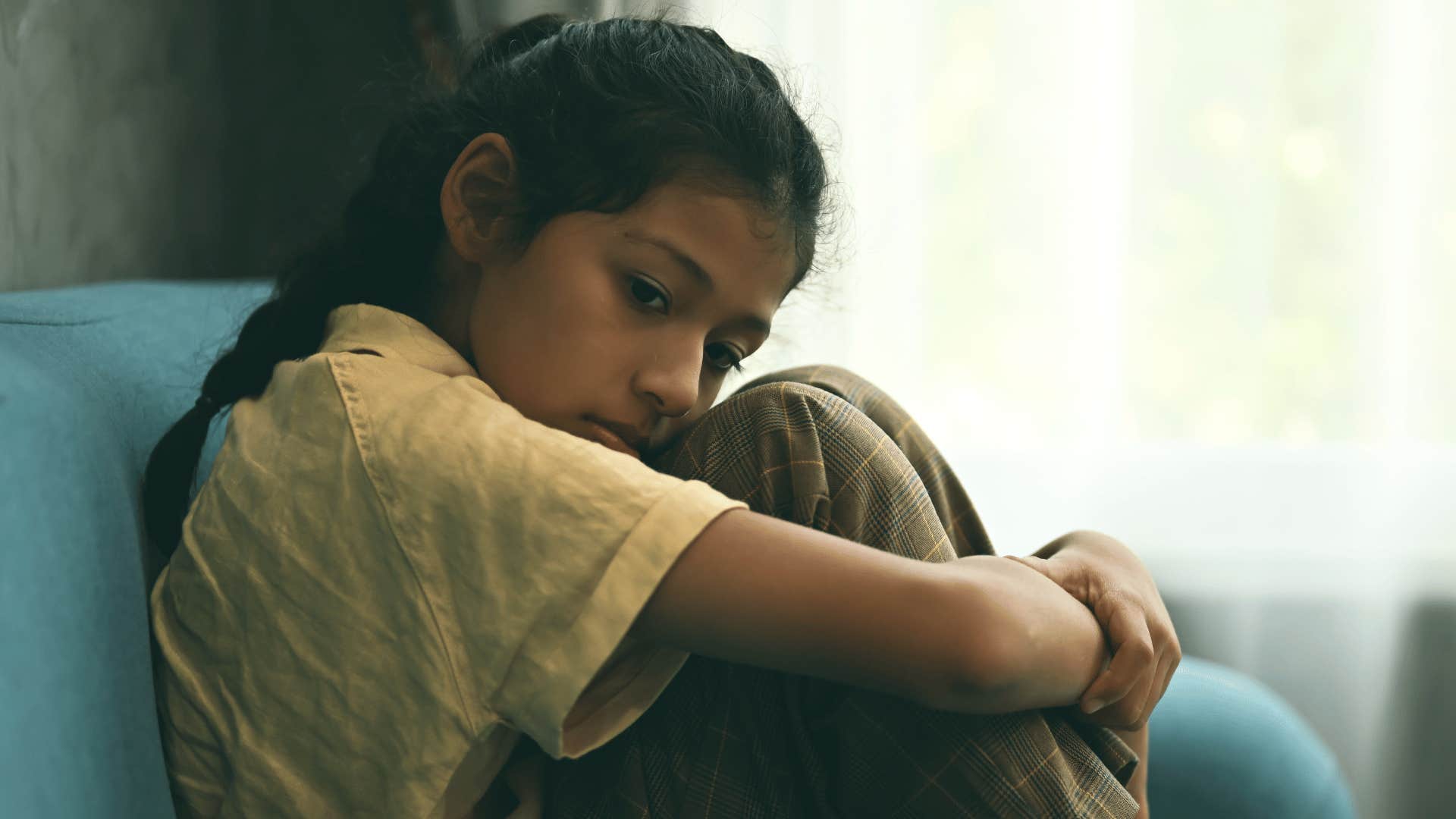 1st Footage | Shutterstock
1st Footage | Shutterstock
Another sign you were not the favorite child relates to how you feel in the company of others. The Survey Center on American Life reported that people raised by parents who had favorites are 40% as likely to report feeling lonely at least once a week in childhood, as opposed to 18% of people in families without a favorite child.
You felt invisible in your own family, as if nothing you did really mattered. As a result, you grew up feeling socially excluded, which led to a sense of isolation that persists even as an adult. You might have a hard time making friends or letting yourself be vulnerable with romantic partners, which can further hinder your sense of belonging.
Alexandra Blogier is a writer on YourTango's news and entertainment team. She covers social issues, pop culture analysis and all things to do with the entertainment industry.

